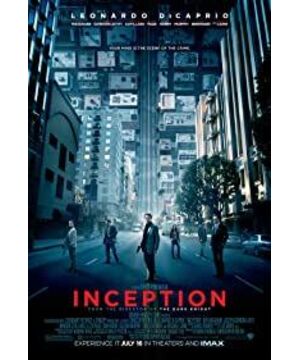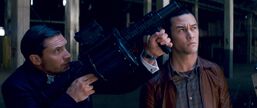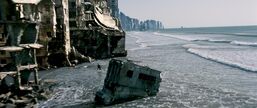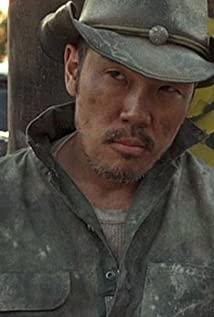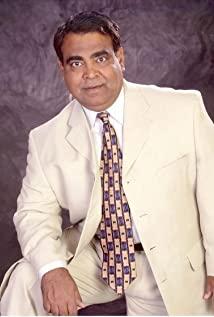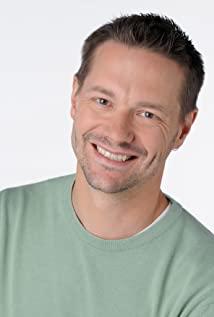I have never seen a sci-fi or action movie like "Inception" before, and the director can make the whole movie so coherent, rigorous, imaginative, substantial but not complicated, the ins and outs are clear and the scenes are spectacular, Really admirable five-body cast. Regarding Freud's "Dream Interpretation" and psychoanalytic theory, I had only heard several mentions from the head teacher, Mr. Yang Honghui, but had not read Freud's masterpieces and had an in-depth understanding of his theoretical thoughts. The product of the subconscious mind is poorly understood. "Inception" not only made me feel a powerful visual feast, but also greatly stimulated my interest in psychoanalytic theory. I really feel that dream is a question too wonderful and worth exploring. Although there are differences and obstacles such as language barriers and different customs and habits when watching foreign movies, sometimes it is impossible to correctly understand the motives behind their actions, but in fact, they are more meaningful and meaningful than romance dramas, soap operas, and comedies. Just looking at these, I feel that my ideological realm has improved, and my spiritual quality and life taste have also sublimated a lot.
Without further ado, after watching "Inception" twice, I naturally have a general and clear understanding of the entire movie plot. I don't want to go into details about the plot of the movie here, because Mr. Long must know more than I do. How can I dare to play an axe and make a fool of myself? Haha. Here I just want to briefly talk about my views on the story of the movie.
The conception of the movie is impeccably refined, and it doesn't feel flawed, but I always feel that there are still some unclear, small confusions. For example, the dreams we usually have are broken and nonsensical, and have never been so coherent. In movies, modern high-tech can be used to allow multiple people to enter a dream at the same time, and the situations in the dream are completed in one go, and even can It's a little bit incredible to get to dream-in-dream, dream-in-dream, dream-in-dream-in-dream, and even more layers. And why does a spinning top in a dream help people distinguish between a dream and reality? Why did both Kirby and Saito enter the Lost Realm and missed the opportunity to go back, so how did they go back? Could it be that strong willpower can really get people out of the chaotic realm that was impossible to get out of? Or is it really like the top spinning at the end of the movie, and they have never returned to the real world? Of course, I'd prefer that they both managed to get back into real life, because that last spinning top does have a tendency to wobble. I also feel that the central idea of the film is actually a bit against the morals and the law. It tells the process of how the protagonist Kirby and his "Pirates of Dreams" disintegrate a monopoly in a seamless and indirect way. The law expressly stipulates that stealing dreams is also a crime, but it always feels like an unfair business theft. However, the finale of the movie is still encouraging. Saito successfully achieves his wish to dismantle Fisher's father's company and fulfills his promise to Kirby; Kirby also received a visa to return to the United States, no longer a An international exile was able to be reunited with a pair of lovely sons and daughters, and at the same time overcame the troubles of the phantom of his wife Moer in his dreams for many years; Fisher also resolved the conflict with his father, and was deeply grateful for his "kindness". understanding" father. These are actually resolved in the short flight of the plane, and the ending is so warm that people cry. I wonder if Kirby and his team will continue to randomly steal or implant thoughts in other people's dreams after this successful collaboration experience? This is a very scary thing. I hope Kirby and his "dream team" don't lose themselves morally and legally in the future. Many of the points of view in the film seem to coincide with those of the psychoanalyst Freud, and should be said to be based on Freud's ideas. Human consciousness is only the tip of the iceberg in a awake state, and the part buried under the sea water accounts for 90% of the total iceberg. That is to say, more human behaviors are actually determined by the subconscious, the initial instinct. When people dream, their consciousness is slack and the subconscious takes the upper hand. Many thoughts of people can break the shackles of reality and run freely in the dream. I think many scientists think hard about the answer when they are awake, and they miraculously get inspiration from the dream after having a dream, so as to achieve world-renowned achievements, is it obtained from the subconscious? Mendeleev, the discoverer of the periodic table of elements. Those mentally ill, sleepwalkers, etc. are also unable to distinguish the difference between the conscious and the subconscious, so they act strangely.
View more about Inception reviews


